- Home
- Andy McNab
Brute Force
Brute Force Read online
Table of Contents
About the Author
Title
By the Same Author
Title Page
Copyright Page
PART ONE Chapter 1
Chapter 2
Chapter 3
Chapter 4
Chapter 5
Chapter 6
Chapter 7
Chapter 8
Chapter 9
PART TWO Chapter 10
Chapter 11
Chapter 12
Chapter 13
Chapter 14
Chapter 15
Chapter 16
Chapter 17
Chapter 18
Chapter 19
Chapter 20
Chapter 21
Chapter 22
Chapter 23
Chapter 24
Chapter 25
Chapter 26
Chapter 27
Chapter 28
Chapter 29
Chapter 30
Chapter 31
PART THREE Chapter 32
Chapter 33
Chapter 34
Chapter 35
Chapter 36
Chapter 37
Chapter 38
Chapter 39
Chapter 40
Chapter 41
Chapter 42
PART FOUR Chapter 43
Chapter 44
Chapter 45
Chapter 46
Chapter 47
Chapter 48
Chapter 49
Chapter 50
Chapter 51
PART FIVE Chapter 52
Chapter 53
Chapter 54
Chapter 55
Chapter 56
Chapter 57
Chapter 58
Chapter 59
Chapter 60
PART SIX Chapter 61
Chapter 62
Chapter 63
Chapter 64
Chapter 65
Chapter 66
Chapter 67
Chapter 68
Chapter 69
Chapter 70
Chapter 71
Chapter 72
Chapter 73
Chapter 74
Chapter 75
Chapter 76
Chapter 77
Chapter 78
PART SEVEN Chapter 79
Chapter 80
Chapter 81
Chapter 82
Chapter 83
Chapter 84
Chapter 85
Chapter 86
Chapter 87
Chapter 88
Chapter 89
Chapter 90
Chapter 91
Chapter 92
Chapter 93
Chapter 94
PART EIGHT Chapter 95
Chapter 96
Chapter 97
Chapter 98
Chapter 99
Chapter 100
Chapter 101
Chapter 102
Chapter 103
Chapter 104
PART NINE Chapter 105
Chapter 106
Chapter 107
Chapter 108
Chapter 109
Chapter 110
Chapter 111
PART TEN Chapter 112
Chapter 113
PART ELEVEN Chapter 114
Chapter 115
Chapter 116
Chapter 117
Chapter 118
Chapter 119
Chapter 120
Chapter 121
Chapter 122
Chapter 123
Chapter 124
Chapter 125
Chapter 126
Chapter 127
PART TWELVE Chapter 128
Andy McNab joined the infantry as a boy soldier. In 1984 he was 'badged' as a member of 22 SAS Regiment and was involved in both covert and overt special operations worldwide.
During the Gulf War he commanded Bravo Two Zero, a patrol that, in the words of his commanding officer, 'will remain in regimental history for ever'. Awarded both the Distinguished Conduct Medal (DCM) and Military Medal (MM) during his military career, McNab was the British Army's most highly decorated serving soldier when he finally left the SAS in February 1993. He wrote about his experiences in three books: the phenomenal bestseller Bravo Two Zero, Immediate Action and Seven Troop.
He is the author of the bestselling Nick Stone thrillers. Besides his writing work, he briefs security and intelligence agencies in both the USA and UK. He is also patron of the Help for Heroes campaign.
www.rbooks.co.uk
BRUTE FORCE
www.rbooks.co.uk
Also by Andy McNab
Non-fiction
SEVEN TROOP
BRAVO TWO ZERO
IMMEDIATE ACTION
Fiction
REMOTE CONTROL
CRISIS FOUR
FIREWALL
LAST LIGHT
LIBERATION DAY
DARK WINTER
DEEP BLACK
AGGRESSOR
RECOIL
CROSSFIRE
For more information on Andy McNab and his books, see his website at www.rbooks.co.uk/andymcnab
BRUTE FORCE
Andy McNab
This eBook is copyright material and must not be copied, reproduced, transferred, distributed, leased, licensed or publicly performed or used in any way except as specifically permitted in writing by the publishers, as allowed under the terms and conditions under which it was purchased or as strictly permitted by applicable copyright law. Any unauthorised distribution or use of this text may be a direct infringement of the author's and publisher's rights and those responsible may be liable in law accordingly.
ISBN 9781407039480
Version 1.0
www.randomhouse.co.uk
TRANSWORLD PUBLISHERS
61-63 Uxbridge Road, London W5 5SA
A Random House Group Company
www.rbooks.co.uk
First published in Great Britain
in 2008 by Bantam Press
an imprint of Transworld Publishers
Copyright © Andy McNab 2008
Andy McNab has asserted his right under the Copyright, Designs and Patents Act 1988 to be identified as the author of this work.
This book is a work of fiction and, except in the case of historical fact, any resemblance to actual persons, living or dead, is purely coincidental.
A CIP catalogue record for this book is available from the British Library.
ISBNs 9780593055618 (cased)
9780593055625 (tpb)
This electronic book is sold subject to the condition that it shall not by way of trade or otherwise, be lent, resold, hired out, or otherwise circulated without the publisher's prior consent in any form other than that in which it is published and without a similar condition including this condition being imposed on the subsequent purchaser
Addresses for Random House Group Ltd companies outside the UK can be found at: www.randomhouse.co.uk
The Random House Group Ltd Reg. No. 954009
ISBN: 9781407039480
Version 1.0
PART ONE
1
Tripoli docks
October 1987
I sat well back in my seat and listened as Colonel Gaddafi's latest day-long rant burst from the radio like an Arab Fidel Castro on speed. I pictured a big mike blocking his craggy features as he denounced Reagan, Thatcher and all things Western, so all you could see was a mad mop of black curly hair and angry flecks of spit flying in every direction.
I was in the passenger seat of an old box-like Russian jeep. Africa was littered with the things, bare metal showing through the green paint where thousands of boots and hands had worn it away.
I was sweating b
ig-time, and it had nothing to do with the weather. This might be North Africa, but it was October. It was cold. The leaking was to do with the wetsuit I had on over my clothes. Apart from my sweatshirt, tracksuit bottoms and trainers, I was totally sterile: no money, no weapon. I wasn't going to need any, not even a watch. Time wasn't going to matter on this job. I had to react to events as they happened, not when the little hand hit five. I would give my cover documents to Lynn at the very last minute.
Sitting back in the seat and completely still – that's the secret of not being seen. The jeep looked just like any one of the ten-year-old American pimp-mobiles we were parked alongside: empty. I had my binos up, eyes on target. My main area of focus was the pair of big holes at the arse end of the ship from which six-inch-thick ropes snaked towards the quayside.
The life of the docks continued around us. The quay was jammed with boats unloading TVs and white goods to feed Libya's consumer boom. This was an oil country and then some. Arabs from all over, brown and black, made up the labour force. The overseers were all ex-pats. The air was filled with German, French, British and American accents. So much for the sanctions against what the White House called the mad dog of the Middle East. All the old imperialists had their noses in the trough. Everyone was helping themselves to the huge salaries offered by this former Italian colony.
The driver was listening intently, hands resting on the enormous black steel steering wheel. 'What's he on about?' I didn't even bother looking over at him.
He powered down the small transistor. 'The whole world is going down the gurgler, as per usual.' The voice was softly spoken, the accent cut-glass.
Although the British embassy had long since closed – along with everybody else's – as part of their sanctions against the Colonel for his habit of sponsoring global terrorism, everybody, Brits included, had left a couple of spooks behind. Colonel Lynn was one of them. Gaddafi remained one of the biggest threats to world peace, and his black-leather-jacketed heavies tended to come to the UK and murder anyone speaking out against the regime, so we needed people with their ear to the ground.
Lynn wasn't a field operator. He was our man in Havana – only in Tripoli. In his late thirties, of average build, he looked and spoke like a history teacher – but his fresh-from-the-shower smell screamed officer, and his aura marked him out as a high flier. He spoke the language and knew the players. He'd probably been born here; for all I knew, his dad had been ambassador or something. Colonel Lynn – I never had found out what his first name was – ate, drank and breathed the place. He was what the Firm called an Arabist.
He was all right, I supposed – just not the sort of guy I'd phone up and ask out for a brew and a sticky bun. A bit too keen for me; a bit too full of devotion to the cause. He probably kept a picture of the Queen under his pillow. And he was also just a bit too keen to tell me how to do my job. He didn't like people like me. There was just a hint now and again of disgust at what people like me got up to. Even though he was part of it, he was from the hands-clean side of the fence and everyone on my side was not much more than a necessary evil.
'Don't forget to confirm the cargo before anything else.'
'OK. What if it isn't there?'
'It is.'
'So why check it?'
'Because I need you to tell me when you get back that you physically saw it.'
The target ship was parked up between two Libyan navy patrol boats in the military section the other side of the harbour. I deliberately didn't say 'moored' because it got a rise out of Lynn. He knew about boaty stuff. I didn't know many of the technical terms and I didn't need to learn them. That was the navy's job. As far as I was concerned it was parked up, and that was fine.
Lynn had a small sailing boat of his own in a marina about fifteen Ks away. I'd spent the last four days living in it while he briefed me. The sitting and eating area downstairs was full of pictures of him and his wife in the creeks of north Norfolk. Nelson country, he called it.
I'd fucked up; by showing a spark of polite interest in a shot of the two of them standing outside their local, the Hero, I had opened the door to a serious history lesson, beginning with how the great man had been born a few miles up the road from their home.
The Egyptian-registered Bahiti could carry up to 150 tonnes of cargo. When the chairman's wife smashed a bottle of Cairo's fizziest against its side, all the bodywork was probably a gleaming white. Twenty or so years of saltwater and neglect had streaked it with rust. A crane was mounted at the bow for loading and unloading. The rest of the topside was flat, apart from the bridge tower at the back end. It looked like a miniature oil-tanker.
Lynn had his binos up too as forklifts hummed around us, laden with yet more crates and what looked like a consignment of dustbin lids. A group of dockers leant against walls smoking, waiting for the next job to come along or some German to bollock them for being Arabs.
'You see the man on the gangplank now?'
I nodded.
'Black leather jacket? Papers in his hand?'
'Yeah, I've got him.'
'That's Mansour.'
I knew plenty about Mansour from Lynn's briefing. He was in his forties and worked for Libyan intelligence. He was medium height and stocky, with brushed-back hair and a very neat moustache.
'He calls me Leptis.'
'Leptis?'
'Just a name he gave me.'
'You two mates?'
'Hardly.' He dropped his binos for a moment and turned to me. 'Need-to-know, Nick – and you don't need to.'
He was right. I didn't need to know – I didn't even want to. All this spookery was way beyond my pay scale.
'You sure that's him? He looks fatter than in the pictures.'
'Absolutely certain. He's over-indulged the falafels, that's all. A sign of privilege. He's overpaid.'
Mansour pointed and shouted, and generally seemed to take over the show as he walked up the gangplank. Two bodies emerged from the hold, headed for Mansour and started talking.
'Stand by – that's Two Cells.'
Lynn confirmed. 'Yes, that's Lesser.'
2
Benjamin Lesser – it didn't sound quite hard-core or Republican enough to belong to PIRA's top bomb-maker. I'd only just got over the Nelson history lesson when Lynn embarked on a lengthy explanation of the origins of the name. It boiled down to the fact that Benjamin was a Celtic name as well as an Eastern European one. It meant favourite son. Benjamin was also a Catholic saint, which qualified it for a place in The PIRA Book of Baby Names. In the year 424 he was tortured by the king of Persia for preaching. Reeds were thrust under his nails and into all the tenderest parts of his body. After this torture had been repeated several times, a barbed stake was shoved up his arse as a show-stopper. PIRA still did much the same thing to its victims fifteen hundred years later, so the history lesson wasn't a total waste of time.
I'd nicknamed Ben Two Cells. It suited me to think of him as stupid. It cheered me up.
'I suppose need-to-know means you can't tell me who the woman is?'
'I don't know her, actually.' Lynn took a couple of seconds to check out the hauntingly beautiful, dark-skinned face. 'Probably one of Mansour's people checking the cargo.'
Two Cells' dark brown wavy hair was a bit longer than it had been in the briefing pictures, down to his shoulders and centre-parted, but it was definitely him. He towered over the Libyan, and probably everybody else aboard. He was at least six four, and built to build. I expected a bomb-maker's hands to be like a pianist's, but Benny Boy's were the size of shovels.
'Remember, you've got to make it look like an accident. And the ship must be preserved at all costs for the Spanish to capture.'
'Yep, I've got it.'
He'd told me enough times over the last few days. This had to be the best-briefed job I'd ever been on. But all the briefing in the world wasn't going to help me drop Two Cells without it looking like exactly what it was. I might be able to channel him into the killing ground, but
if anything went wrong I'd have to contend with a good eighteen stone of seriously unsaintly Two Cells throwing one of those super-sized fists at me. If it made contact, I'd be over the side.

 Get Me Out of Here!
Get Me Out of Here!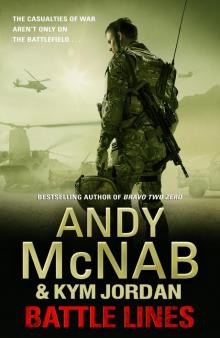 Battle Lines
Battle Lines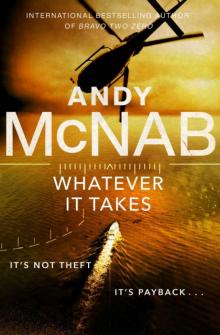 Whatever It Takes
Whatever It Takes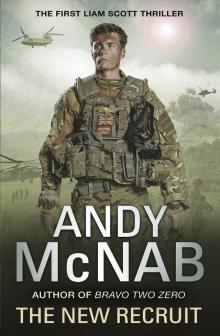 The New Recruit
The New Recruit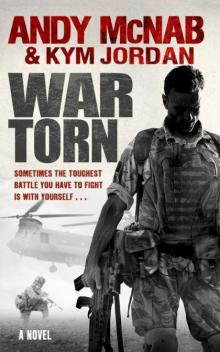 War Torn
War Torn Brute Force
Brute Force Crossfire
Crossfire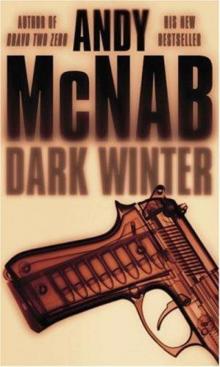 Dark Winter ns-6
Dark Winter ns-6 The Grey Man
The Grey Man Spoken from the Front
Spoken from the Front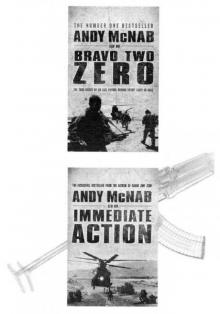 Meltdown
Meltdown Recoil
Recoil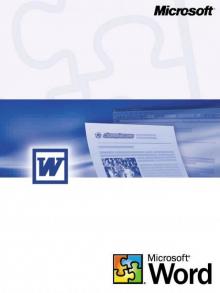 Nick Stone 1 - Remote Control.
Nick Stone 1 - Remote Control.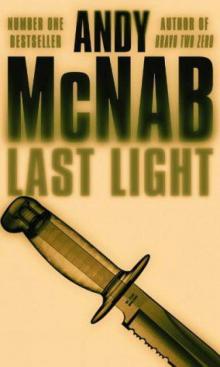 Last Light ns-4
Last Light ns-4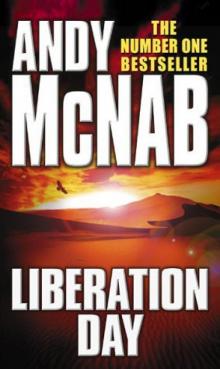 Liberation day
Liberation day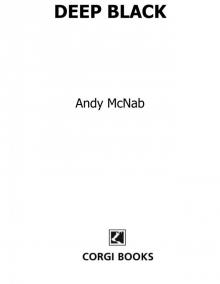 Deep Black
Deep Black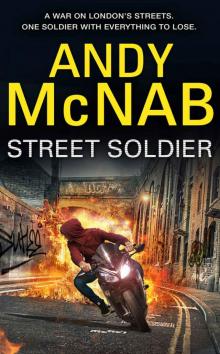 Street Soldier
Street Soldier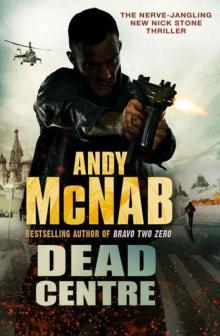 Dead Centre ns-14
Dead Centre ns-14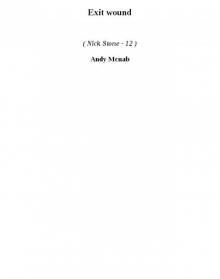 Exit wound ns-12
Exit wound ns-12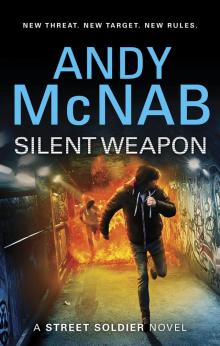 Silent Weapon
Silent Weapon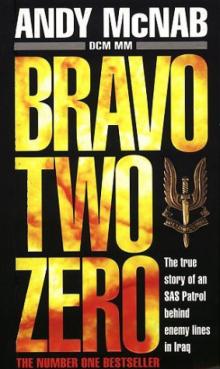 Bravo two zero
Bravo two zero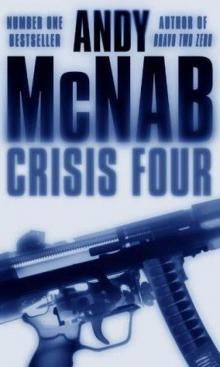 Crisis Four ns-2
Crisis Four ns-2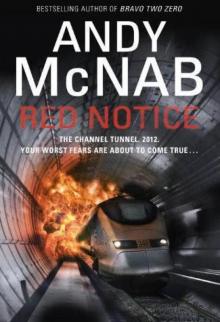 Red Notice
Red Notice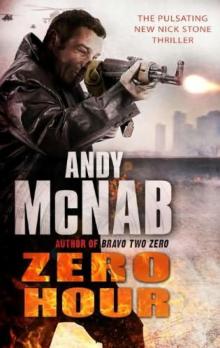 NS13 Zero Hour
NS13 Zero Hour Firewall
Firewall Last Light
Last Light Aggressor
Aggressor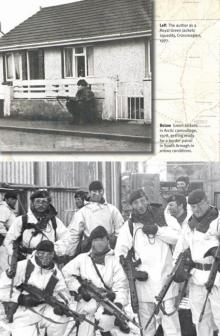 Seven Troop
Seven Troop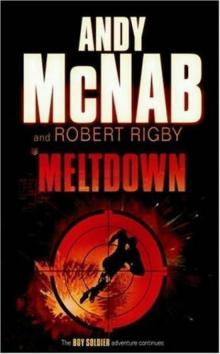 Meltdown bs-4
Meltdown bs-4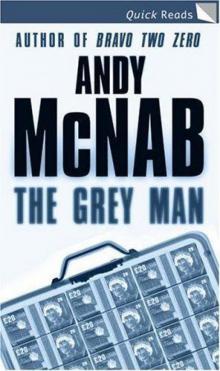 The Grey Man (quick reads)
The Grey Man (quick reads)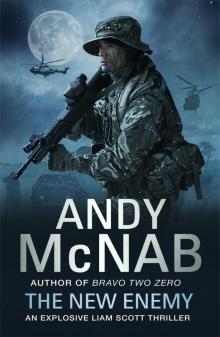 The New Enemy
The New Enemy Avenger
Avenger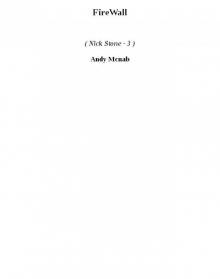 FireWall ns-3
FireWall ns-3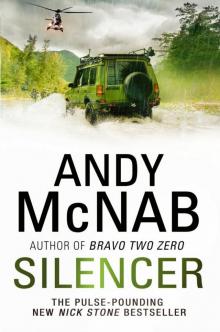 Silencer
Silencer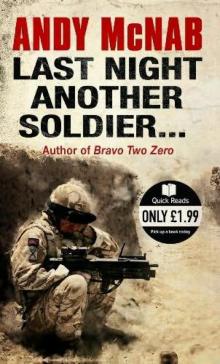 Last Night-Another Soldier…
Last Night-Another Soldier…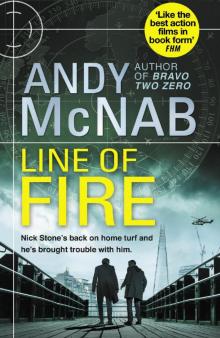 Line of Fire:
Line of Fire: Detonator
Detonator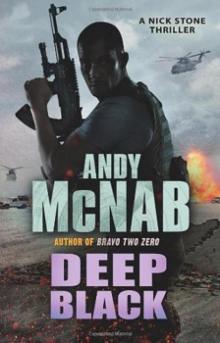 Deep Black ns-7
Deep Black ns-7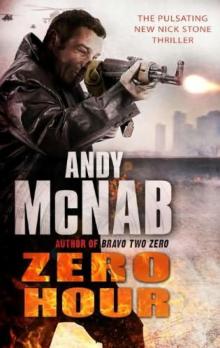 Zero Hour (2010) ns-13
Zero Hour (2010) ns-13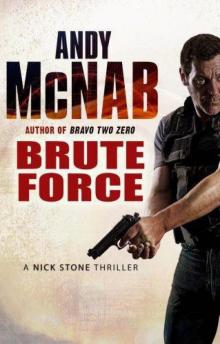 Brute Force ns-11
Brute Force ns-11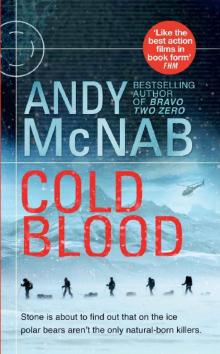 Cold Blood
Cold Blood Terminal Velocity
Terminal Velocity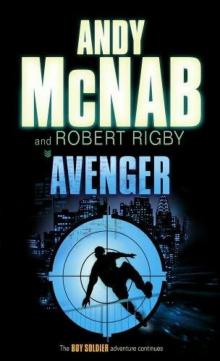 Avenger bs-3
Avenger bs-3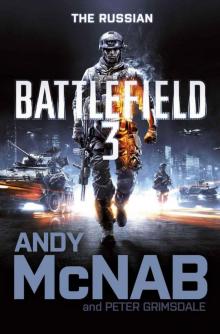 Battlefield 3: The Russian
Battlefield 3: The Russian DropZone
DropZone Zero Hour
Zero Hour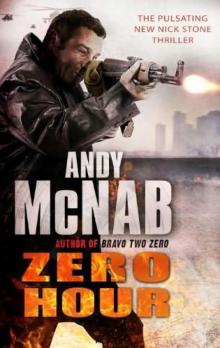 NS13 Zero Hour (2010)
NS13 Zero Hour (2010)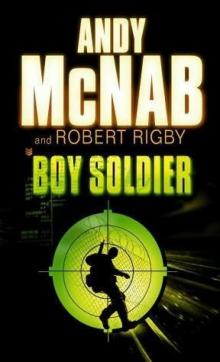 Boy soldier bs-1
Boy soldier bs-1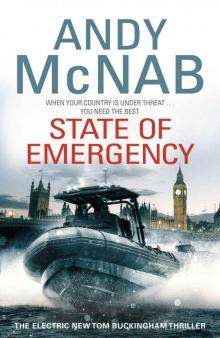 State Of Emergency: (Tom Buckingham Thriller 3)
State Of Emergency: (Tom Buckingham Thriller 3)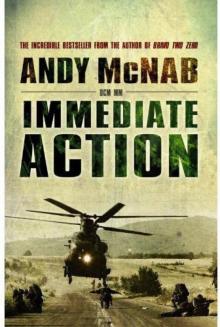 Immediate Action
Immediate Action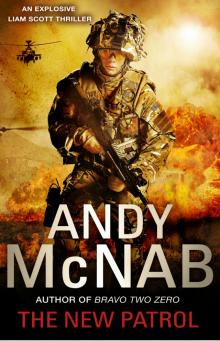 The New Patrol
The New Patrol Crisis Four
Crisis Four Boy Soldier
Boy Soldier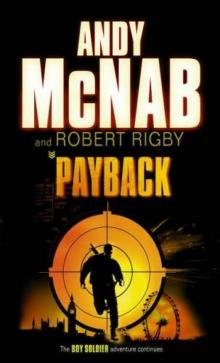 Payback bs-2
Payback bs-2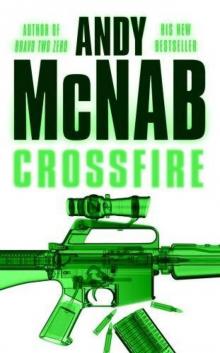 Crossfire ns-10
Crossfire ns-10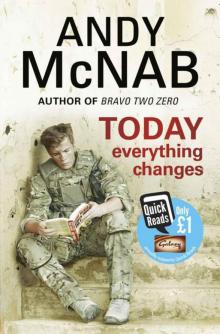 Today Everything Changes: Quick Read
Today Everything Changes: Quick Read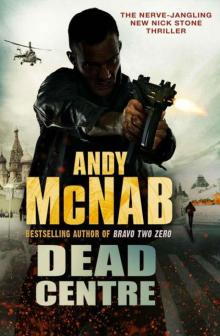 Dead Centre
Dead Centre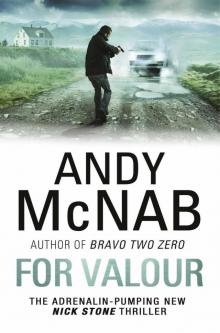 For Valour
For Valour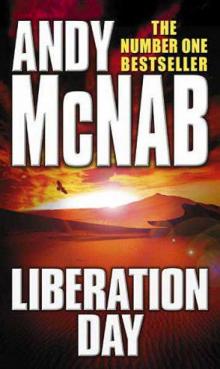 Liberation Day ns-5
Liberation Day ns-5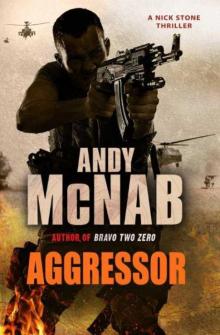 Aggressor ns-8
Aggressor ns-8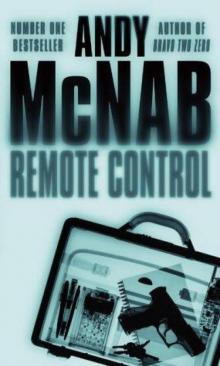 Remote Control ns-1
Remote Control ns-1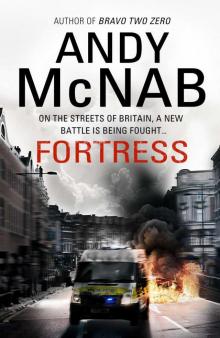 Fortress
Fortress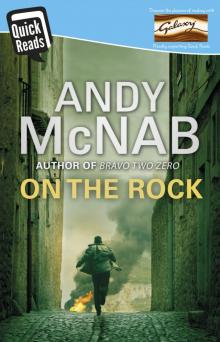 On the Rock
On the Rock Dark Winter
Dark Winter